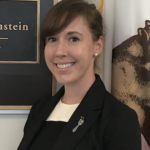In May, ACR leaders, including the Board of Directors, members of committees related to advocacy and members still in fellowship, will visit Washington, D.C., as a part of our Advocacy Leadership Conference. On May 7, the group will go to Capitol Hill and ask their representatives and senators to support stabilizing Medicare reimbursement for physicians.
Because physicians are currently the only healthcare sector that does not receive an inflation-linked increase in Medicare payments, we are asking Congress to support the Strengthening Medicare for Patients & Providers Act (H.R. 2474). This bill ties physician payments for treating Medicare patients to inflation by adding a permanent, Medicare Economic Index (MEI)-based inflationary update to the Medicare Physician Fee Schedule (MPFS).
Since 1989, any estimated increase of $20 million or more to the MPFS—created by upward payment adjustments or the addition of new procedures or services—must be offset by cuts elsewhere. Therefore, each time a procedure code or other service is reviewed and updated to reflect a higher value, the conversion factor for all the codes is cut to offset that increase. To lessen the impact of this cap, we are asking for support for the Provider Reimbursement Stability Act (H.R. 6371) to raise this budget neutrality threshold from $20 million to $53 million, followed by threshold increases every five years to reflect the cumulative increase in the MEI.
This bill would also require the Centers for Medicare & Medicaid Services to:
- Reconcile inaccurate utilization projections based on actual claims data, then revise the conversion factor (CF) accordingly;
- Review direct input for practice expense relative value units (RVUs) to be reviewed concurrently, no less than once every five years; and
- Limit any prospective positive or negative budget neutrality adjustments to the conversion factor to 2.5% each year.
We are thankful this Congress is considering legislation that could prevent the cycle of annual cuts to the conversion factor, but long-term reform will be necessary to stabilize Medicare for physician providers. The balanced budget requirement eventually must be repealed, because $20 million represents a fraction of the care it once did. Slight annual updates to procedures or codes leads to annual battles over arbitrarily limited resources, when the focus should be on patient care.

